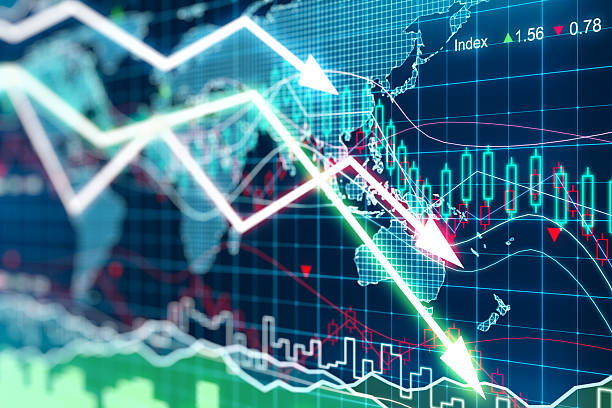The Impact of Global Events on Stock Market Performance
The stock market is a reflection of global economic, political, and social dynamics, and is often significantly influenced by global events. While individual company performance plays a crucial role in determining stock prices, broader events such as geopolitical conflicts, natural disasters, pandemics, and changes in global trade policies can create substantial market volatility. Understanding how these events impact the stock market is essential for both individual and institutional investors, as these factors can lead to both opportunities and risks in the financial markets.
This article explores how different types of global events affect stock market performance and why investors need to stay informed about world events in order to navigate market fluctuations effectively.
Geopolitical Events: Wars, Conflicts, and Political Uncertainty
Geopolitical events, such as wars, territorial conflicts, and political instability, can create significant ripples across the global economy and stock markets. When tensions rise between countries or regions, investors tend to become risk-averse, leading to market sell-offs.
1. Wars and Military Conflicts: Historical evidence shows that periods of military conflict, such as the Gulf War in the early 1990s or the Russia-Ukraine conflict in 2022, cause disruptions in global supply chains, increases in energy prices, and economic instability. Stock markets tend to decline during wartime, especially in countries directly involved in the conflict, as investors anticipate the negative economic impacts of war.
2. Political Uncertainty and Elections: Political uncertainty, particularly during election cycles, can also cause market volatility. Investors prefer political stability, as unpredictable election outcomes or contentious transitions of power often lead to market uncertainty. For instance, the U.S. presidential elections or Brexit negotiations created market fluctuations as investors reacted to the potential impact of policy changes.
3. Trade Wars and Tariffs: Disputes between countries over trade agreements can also create disruptions in the stock market. For example, the trade war between the U.S. and China that began in 2018 resulted in stock market volatility, as tariffs on billions of dollars’ worth of goods threatened global supply chains and corporate earnings. Market performance typically declines during periods of trade tension, as companies face increased production costs and reduced profitability.
Economic Events: Financial Crises, Inflation, and Interest Rates
Economic events, such as financial crises, inflation, changes in interest rates, and shifts in fiscal policy, have a profound effect on stock markets. These factors can directly influence investor sentiment, corporate earnings, and overall market stability.
1. Financial Crises: The most significant example of an economic event that affected global stock markets was the 2008 financial crisis. Triggered by the collapse of major financial institutions, a housing bubble burst, and the failure of banks, this crisis led to massive declines in stock markets worldwide. Investors lost confidence in financial institutions, and stock prices plummeted across almost every sector.
2. Inflation and Interest Rates: High inflation and rising interest rates can negatively impact stock prices. Inflation reduces the purchasing power of consumers, which can lead to lower corporate profits, particularly in industries reliant on consumer spending. Central banks typically respond to rising inflation by increasing interest rates, which makes borrowing more expensive for businesses and consumers. As a result, stock prices may fall as investors anticipate slower economic growth.
In contrast, low inflation and stable interest rates tend to support stock market growth, as businesses can borrow cheaply to invest in expansion, and consumers have more disposable income to spend.
3. Economic Growth and GDP: Strong economic growth, as measured by GDP, usually signals a healthy economy and higher corporate profits, which boosts stock market performance. Conversely, a recession or economic contraction results in lower demand for goods and services, reduced profits for companies, and falling stock prices. Investors closely monitor GDP growth rates to gauge the health of the economy and adjust their stock portfolios accordingly.
Natural Disasters: Earthquakes, Hurricanes, and Pandemics
Natural disasters and unforeseen global events such as pandemics can cause immediate disruptions to stock markets, particularly if they impact major economic regions or industries. The immediate market response to such events is often marked by increased uncertainty, fear, and volatility.
1. Natural Disasters: Events such as hurricanes, earthquakes, or wildfires can devastate local economies and disrupt supply chains. For example, the 2011 earthquake and tsunami in Japan caused significant damage to infrastructure and disrupted manufacturing in key industries. As a result, stock markets in affected regions experienced sharp declines.
Moreover, natural disasters that affect key sectors such as energy (e.g., oil production in the Gulf of Mexico) or agriculture (e.g., crop failures from droughts or floods) can have ripple effects across global markets, leading to higher commodity prices, changes in production, and shifts in investor sentiment.
2. Pandemics and Global Health Crises: Perhaps the most striking example of a global event that impacted stock markets was the COVID-19 pandemic. The pandemic caused widespread economic shutdowns, business closures, and reduced consumer spending, which led to sharp declines in global stock markets in early 2020. Travel, hospitality, and retail industries were particularly hard-hit, while sectors such as technology and healthcare saw a surge in demand.
Pandemics trigger market volatility by creating uncertainty regarding future economic growth, government response, and public health. Governments and central banks often intervene by implementing fiscal stimulus packages and lowering interest rates to mitigate the impact on markets, but the long-term economic effects can still weigh heavily on investor confidence.
Global Market Sentiment and Investor Behavior
While the immediate effects of global events are important, the broader impact on market sentiment is equally significant. Market sentiment refers to the overall attitude of investors toward market conditions. It is shaped by emotions such as fear, greed, optimism, and pessimism, which can influence stock prices.
Global events can create shifts in sentiment, often leading to large-scale buying or selling of stocks:
- Bullish Sentiment: Positive global events, such as economic recovery, trade agreements, or political stability, can create an optimistic outlook for the market, leading to increased buying activity and rising stock prices.
- Bearish Sentiment: Conversely, negative events, such as economic recessions, geopolitical instability, or global health crises, can cause widespread fear and panic, resulting in massive sell-offs and a general decline in stock prices.
Investor sentiment can often exacerbate market fluctuations. For instance, during periods of market panic, investors may overreact to global events, resulting in greater volatility. On the other hand, positive sentiment during periods of growth can fuel asset bubbles and create unsustainable market conditions.
Conclusion
Global events, both predictable and unexpected, play a crucial role in shaping stock market performance. Geopolitical events, economic shifts, natural disasters, and health crises can all lead to volatility, changes in investor sentiment, and fluctuations in stock prices. While some events can create opportunities for investors to capitalize on, others can introduce significant risks.
Understanding the relationship between global events and stock market performance is essential for investors looking to navigate the complexities of the market. By staying informed about world events, investors can make more informed decisions, protect their portfolios from potential risks, and position themselves to take advantage of emerging opportunities. The key to success in the stock market lies in a well-researched and disciplined approach to managing risks in the face of an ever-changing global landscape.

